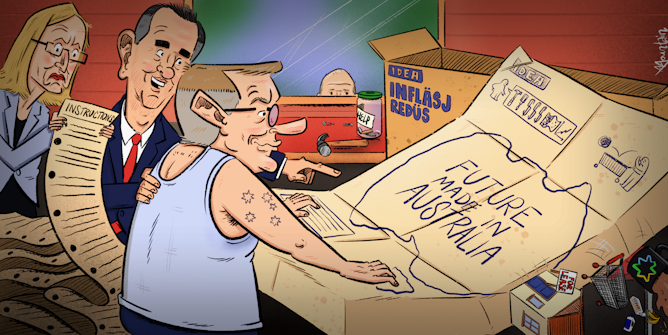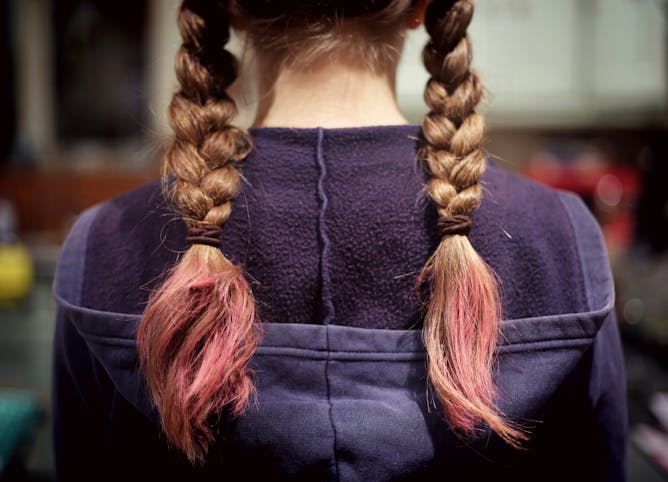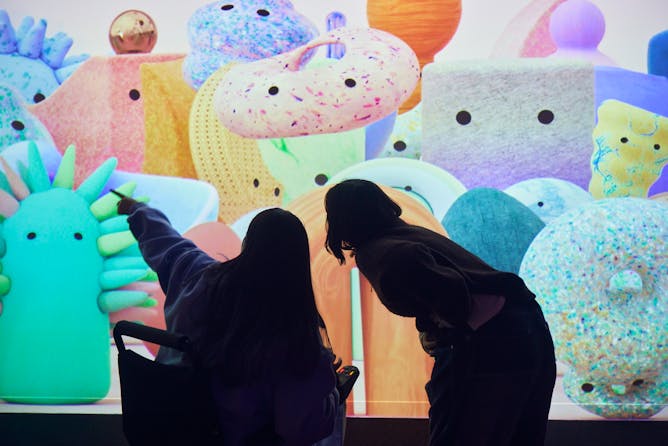|
The AFL and NRL celebrated their Indigenous rounds at the weekend, which aim to highlight the contributions of Indigenous players and promote cultural awareness and foster reconciliation.
Unfortunately, new research shows racism among sports spectators in Australia may be getting worse.
The first large-scale study of spectator racism in the three major men’s leagues (AFL, NRL and A-League Men) has just been published. As Keith Parry and his colleagues found, 50% of AFL fans surveyed had witnessed racist behaviour at games, along with 36% of NRL fans and 27% of A-League Men fans. Fans of all three codes said racism has been more prevalent in the preceding two years than it was before.
The football codes are finally getting serious about racism inside footy grounds, penalising perpetrators with lengthy or even lifetime bans.
What is urgently needed though is a greater commitment by fans, especially white fans, to report racism when they observe it. Otherwise they’re giving a free kick to bigots.
But now, to a different survey: The Conversation and the Economic Society of Australia asked 50 of Australia’s most distinguished economists for their verdict on Treasurer Jim Chalmers’s recent budget. Only one-third of them gave it top marks.
Asked whether it will get inflation back within the Reserve Bank’s target band by the end of this year, most said they think it won’t. Rather than being a budget for “decades to come”, as Chalmers has claimed, most say it will leave big issues unaddressed, such as home prices, Australia’s tax system, ailing productivity growth and geopolitical uncertainty.
PS. Thanks to all of you who have given to our donations campaign so far. If you value our unique brand of journalism, please consider becoming a donor and helping to support our work.
|

|
Niall Seewang
Sport + Society Editor
|
|

Keith Parry, Bournemouth University; Connor MacDonald, University of South Australia; Daryl Adair, University of Technology Sydney; Jamie Cleland, University of South Australia
New research shows racism among sports fans in Australia is still rife. White footy fans need to report racism – otherwise they’re giving a free kick to bigots.
|

Peter Martin, Crawford School of Public Policy, Australian National University
Only one-third of the top economists surveyed give Jim Chalmers’ third budget an A or a B, down from two-thirds in 2023. Many say it left big issues unaddressed.
|

Carl Rhodes, University of Technology Sydney
Forty years of the neoliberal experiment have created a world of vast and increasing inequality. But this can and should change.
|

Lara Herrero, Griffith University
The so-called ‘FLiRT’ variants are dominant in the US and appear to be gaining traction in Australia. Here’s the information we have so far.
|

Kayla Mildren, Griffith University
After yet another student is banned for having the “wrong” type of hair at school, new research shows this is part of a wider pattern to enforce norms around gender, class and race.
|

Rebecca McGirr, Australian National University; Anthony Purcell, Australian National University; Herbert McQueen, Australian National University; Paul Tregoning
Water is very heavy – and it can move. Until now, changes to water on land have actually offset much of the rising sea level from ice melt. How? Gravity
|

Dominic Redfern, RMIT University
Kids will probably love it. It looks like the distilled essence of Pixar’s Monster’s Inc visual appeal. Essence is the wrong word though; to be honest this is more like pastiche.
|

Jules Epstein, Temple University
Closing arguments tell the jury why the evidence is believable or not, how the facts are linked or not and, most importantly, why their decision to either acquit or convict is moral and just.
|

Glen Thomas Currie, Monash University; Anna Malos, Monash University
Australia has all the key ingredients to build a booming battery industry. We just need to find the right cooks and co-ordinate all of this frantic activity to get this big opportunity right.
|

Paola A. Magni, Murdoch University; Noemi Procopio, University of Central Lancashire; Sarah Gino, Università del Piemonte Orientale
A uniquely identifying population of bacteria can survive on clothes for months after a person wears them.
|

Eloise Stevens, The Conversation
Paleontologist Bill Ausich explains whether dinosaurs could ever roam the Earth again. Listen on The Conversation’s Curious Kids podcast.
|
Politics + Society
|
-
Michelle Grattan, University of Canberra
Andrew Bragg joins us to explain why the coalition sees migration as a major issue when it comes to housing supply.
-
Tim Harcourt, University of Technology Sydney
So much is going right for soccer in Australia at the national level and in grassroots participation. But the A-League is struggling to convert its opportunities into wins.
-
Ben Wellings, Monash University
The polls predict the UK is headed for a change of government. If Labour wins, would much change for Australia?
-
T.J. Thomson, RMIT University; James Meese, RMIT University
Media outlets like The Australian and The Daily Telegraph will now share their content with the makers of ChatGPT. It raises many questions about the future of journalism and how people access news.
|
|
Health + Medicine
|
-
Jaimon Kelly, The University of Queensland
A virtual ED is typically staffed by emergency doctors, nurses and support staff who can assess patients’ symptoms, provide medical advice, and direct care to the right place.
|
|
Environment + Energy
|
-
Clive Schofield, University of Wollongong; Karen Scott, University of Canterbury
The ruling could be a legal game-changer for small island nations that are trying to hold developed nations to account for the impacts of their greenhouse gas emissions.
-
Deanna Kemp, The University of Queensland; John Burton, The University of Queensland
As we launch into a Future Made in Australia, we need to map and better understand the social and economic risks – as well as potential benefits – for remote and disadvantaged communities.
|
|
Arts + Culture
|
-
Rebecca Trelease, Auckland University of Technology
A former TV reality romance contestant explains what MAFS NZ will have to get right after the recent Australian season’s massive success with New Zealand viewers.
|
|
| |
|
|
|
The Conversation AU
Melbourne VIC, Australia
•
Full Time
|

|
|
|
|
| |
| |

|
| |
| |
| |
Featured Events, Courses & Podcasts
|
View all
|
|
|
|
| |
| |
| |
| |
| |
|
|